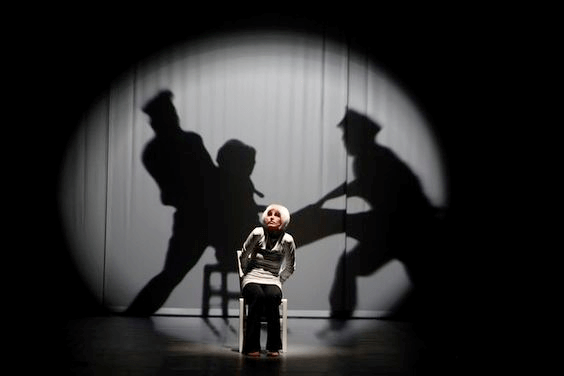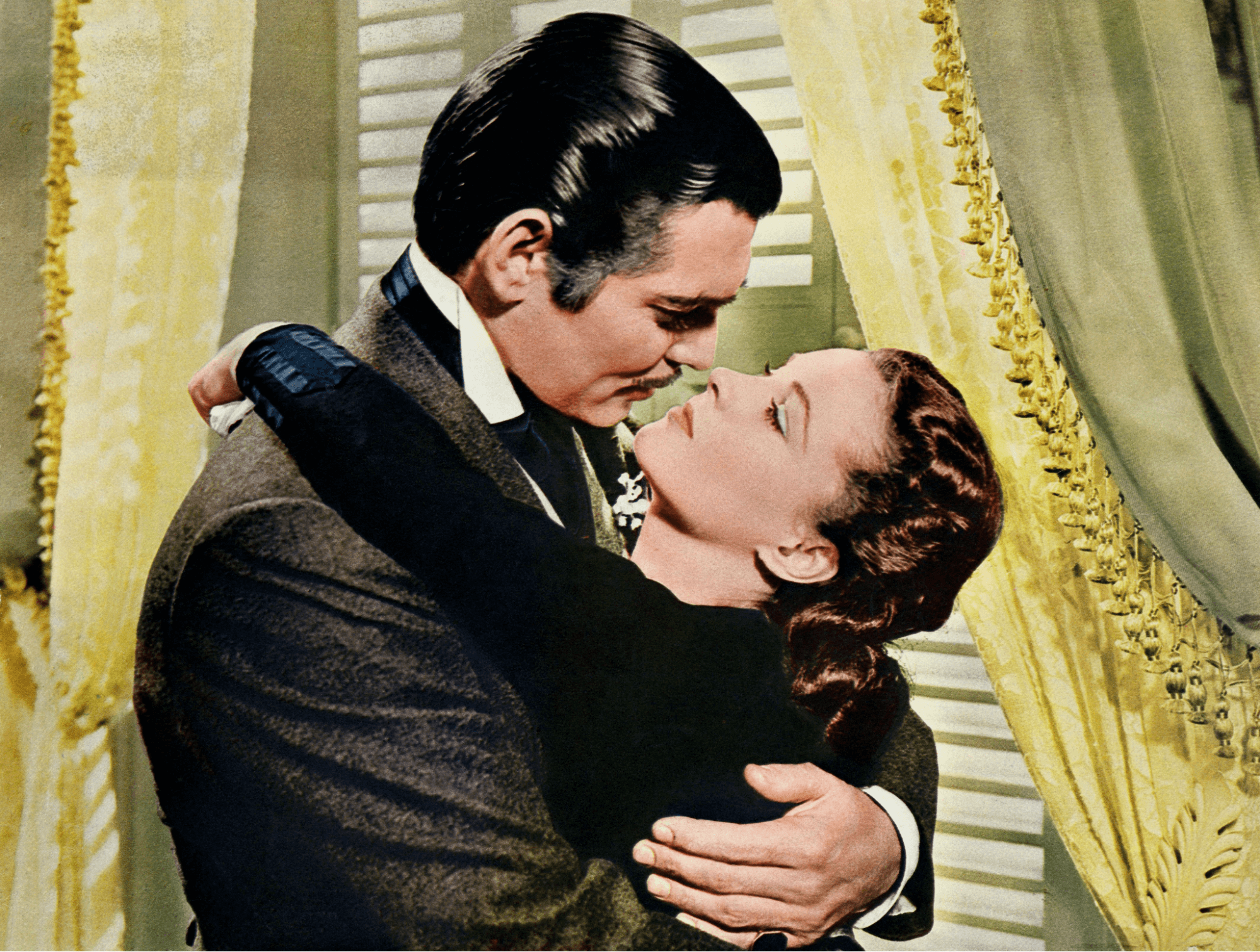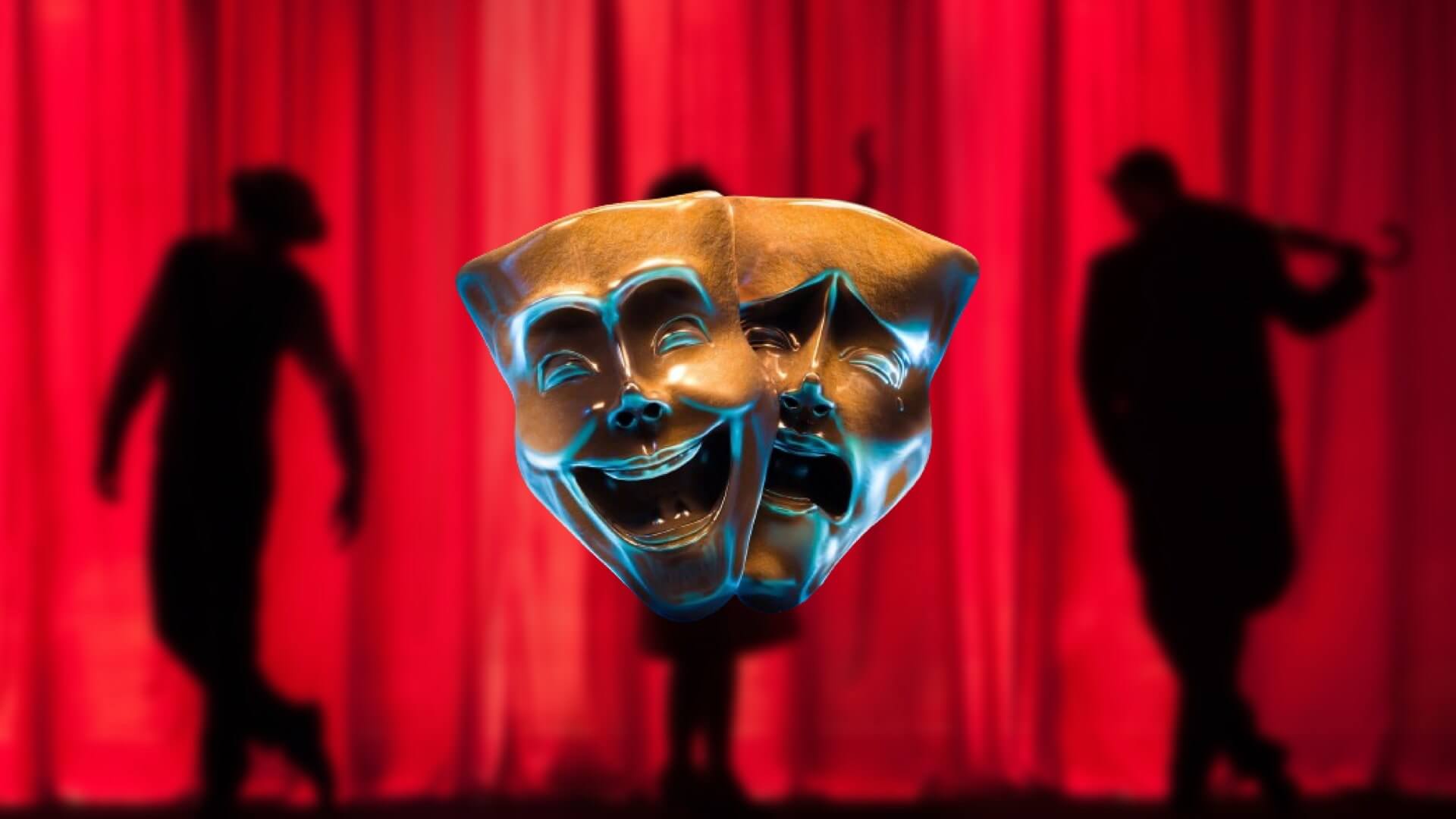D
rama, an intricately captivating facet of human expression, skillfully weaves together narratives through powerful performances, invoking a myriad of emotions and profound thoughts. It forms an extraordinary intersection where the art of the written word harmoniously intertwines with the dynamic artistry of physical depiction, breathing life into stories that resonate on both the grand stages and the silver screen. But what is drama, actually? Where does it come from, and what makes a story dramatic? Let’s find out.
What is Drama Defined By?
First, let’s define drama
Let's first pin down a clear definition of drama to understand what exactly constitutes this powerful form of art.
DRAMA DEFINITION
What is drama?
Drama is a captivating literary genre that is brought to life through performance. With its roots tracing back to the Greek word 'dran,' meaning 'to do' or 'to act,' drama encompasses a wide range of artistic expressions. It delves into the complexities of human emotions, intertwining the lives of characters in a web of conflicts and resolutions. Through compelling narratives and vivid portrayals, drama not only entertains but also stimulates deep contemplation and introspection.
It offers a unique platform for exploring the human condition and shedding light on the diverse facets of the human experience. Whether on stage or screen, the power of drama lies in its ability to transport audiences into different worlds, allowing them to witness the triumphs, tragedies, and intricacies of life unfold before their eyes.
Types of Drama
- Tragedy
- Comedy
- Melodrama
- Farce
- Musical
History of Drama
Drama — a rich and varied history
The history of drama is woven with threads from many civilizations, cultures, and time periods. Its evolution is a fascinating journey that traces the path of human societal progression.
Ancient Origins
Drama has a fascinating and diverse history that can be traced back to the ancient civilizations of the world. Greek drama, considered one of the earliest forms of drama emerged as a powerful medium intertwined with religious ceremonies, captivating audiences with its mythical and moral themes.Thespis, Athens, and The Origins of Greek Drama • Crash Course Theater
Over time, this ancient art form evolved, giving birth to the theatrical traditions that continue to shape and inspire contemporary performances. From the grand amphitheatres of ancient Greece to the modern stages of today, drama has transcended time, leaving an indelible mark on the human experience.
Drama Across Cultures
Throughout the centuries, drama has transcended borders and permeated diverse cultures and continents. Each region offered its own distinctive and captivating interpretation of this timeless art form.
Whether it's the grandiose tragedies of ancient Greece, the refined Noh theater of Japan, or the vibrant and energetic Broadway productions, the universal language of drama continues to evolve and captivate audiences worldwide, connecting people through the power of storytelling.
Renaissance Leap
During the Renaissance, a remarkable leap occurred in the realm of drama. Playwrights such as William Shakespeare and Christopher Marlowe emerged onto the scene. They made profound contributions that forever shaped and elevated the genre. Their works captivated audiences with their eloquent language, intricate plots, and profound exploration of human emotions.
History of Ideas • The Renaissance
Through their masterful storytelling, they transported audiences to worlds both familiar and fantastical, leaving an indelible mark on the history of theater. The Renaissance became a golden age for drama, thanks to the artistic brilliance and creative ingenuity of these celebrated playwrights.
Evolution and Movements
Throughout the 19th and 20th centuries, drama underwent an intriguing evolution, propelled by influential artistic movements that sought to capture the essence of societal changes and delve into the depths of human psychology.
The emergence of Realism, with its emphasis on depicting life as it truly is, provided a stark contrast to the fantastical realm of Surrealism, which explored the subconscious and challenged conventional notions of reality.
These dramatic movements, in their distinct ways, pushed the boundaries of theatrical expression, leaving an indelible mark on the artistic landscape of their time.
WHAT IS DRAMA AND WHY IT’S IMPORTANT
The power of performance
The power to bring the written word to life in a captivating and powerful manner lies at the heart of drama. Through physical embodiment, characters become more than mere words on a page. From expression to gesture to costume, performers bring nuance and depth to their characters that can often only be conveyed through performance.
Expression
Through facial expressions, actors can convey a wide range of emotions, from joy to sorrow, anger to love. The subtle movements of the eyebrows, the curl of a lip, or the sparkle in the eyes can speak volumes and create a connection between the audience and the character.
Think of this scene from I, Tonya. All we need to feel the emotion of the scene is the performance of Margot Robbie. No words. No dialogue. No music. Simply expression and drama.I, Tonya • Drama Examples
Gesture
Physical gestures can communicate meaning and intention. A simple hand movement, a wave, or a pointing finger can convey a message, emphasize a point, or reveal a character's personality.
From the grand sweeping movements to the delicate subtleties, gestures add another layer of communication to the performance.

Drama Examples • Gestures and Performance
Costume
The choice of costume can instantly transport the audience to a specific time period or setting. It can reflect a character's status, personality, or even their hidden desires.
The colors, fabrics, and styles of the costumes enhance the visual storytelling and provide cues about the characters and the world they inhabit.
Costume Design — The Hidden Layer of Movie Magic
This transformation from text to living art is what makes drama so unique and powerful; it has the ability to transport an audience to a world of imaginative storytelling. The impact of expression, gesture, and costume on the stage brings the characters and their stories to life, creating a memorable and immersive experience for all.
Related Posts
Various Types of Drama
Types of Drama
In exploring the captivating world of drama, it's essential to recognize its diverse forms. The drama genre comes in diverse types, each with its unique storytelling techniques and thematic explorations.
Tragedy
Tragedy showcases the protagonist's downfall, evoking strong emotions of pity and fear. One notable example is Shakespeare's Hamlet, where the tragic hero's quest for revenge leads to a series of tragic events. In many instances, the hero is plagued with a tragic flaw (also known as hamartia) that directly leads to this downfall.Hamlet • Tragedy Drama Examples
Comedy
Comedy offers light-hearted plots with humorous outcomes. It aims to entertain and bring joy to the audience. A classic example is Oscar Wilde's The Importance of Being Earnest, a witty and satirical play that explores mistaken identities and societal conventions.
Melodrama
Many wonder what is the difference in drama vs melodrama and how what distinguishes each. Melodrama exaggerates characters and emotions, creating intense and dramatic situations. It often includes exaggerated gestures and passionate dialogue.
A famous melodramatic example is Gone with the Wind, a sweeping epic set during the American Civil War, filled with love, betrayal, and sacrifice.

Gone With the Wind • Drama Examples
Farce
Farce relies on slapstick humor and absurd situations to generate laughter. It often involves mistaken identities, misunderstandings, and chaotic events. One well-known farce is Michael Frayn's Noises Off, a play within a play that hilariously depicts the backstage antics of a dysfunctional theater troupe.
Historical Drama
Historical dramas depict events from the past, bringing significant moments in history to life on the stage. An example is Lin-Manuel Miranda's Hamilton, which tells the story of Alexander Hamilton and the founding of the United States through a combination of hip-hop, R&B, and traditional musical theater.Hamilton • Drama examples
Musical Drama
Musical dramas use singing and dancing to enhance the storytelling experience. They combine music, lyrics, and choreography to convey emotions and advance the plot. One iconic musical drama is Andrew Lloyd Webber's The Phantom of the Opera, a haunting love story set in the Paris Opera House.
Each type of drama offers a unique narrative style and provides audiences with diverse and captivating theatrical experiences.
What is Drama Evolving Toward?
Evolution of Drama
Throughout history, drama has evolved, skillfully adapting to societal changes, technological advancements, and shifting audience preferences. From ancient Greece to the digital performances of today, drama has transformed, remaining a dynamic medium of storytelling.
In the contemporary world, drama pushes boundaries, exploring complex themes and reflecting diverse realities. It sparks conversations and inspires change.
Drama evolves, reflecting its environment and audience preferences. Looking ahead, the genre will adapt and innovate, maintaining its vital role as a conduit for storytelling and a catalyst for thought and conversation.
Through its evolution, drama underscores the need for human connection, empathy, and understanding, reinforcing its enduring relevance and impact.
Up Next
What is Comedy?
While the intensity and depth of drama allow us to dive into complex emotions and narratives, it's the lighter, more humorous side of storytelling that often provides a much-needed respite. This brings us to our next topic, comedy, an art form that uses humor as its central theme.
Up Next: Comedy Explained →
Showcase your vision with elegant shot lists and storyboards.
Create robust and customizable shot lists. Upload images to make storyboards and slideshows.
